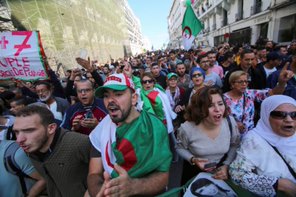On November 1st, for Revolution Day, Algerians went to the polls to decide on a constitutional revision supposed to herald a “new Algeria”. Following the boycott of the 2019 presidential elections, this referendum – described by constitutional law experts as a “Caesarean plebiscite” – hit a record low turnout.
For such a referendum, the turnout rate reached 23.7%, representing only 5.5 million voters out of the 23.5 million registered. This low turnout highlights the complete distrust of the population towards the acting authorities and the complete inability for said authorities to engage in a constructive dialogue with citizens and civil society.
Looking beyond the turnout figure, the inputs of this new Constitution regarding civil liberties and fundamental rights remain limited. For instance, while the text proposes that freedom of the press cannot be restrained or censored (Article 54), the Constitution ties this freedom to the respect “of traditions and religious, moral and cultural values of the Nation”.
The new Constitution does guarantee freedom of expression but submits it to the national legislative framework. This framework enables the maintenance of repressive laws such as the amendments brought to the Penal Code in April 2020 which created an offence for spreading “false news”, an act punishable by up to three years imprisonment.
The right to peaceful assembly is recognised by Article 52 of the Constitution. Here again, the text ties the exercise of this right to the “modalities” offered by the Law. Yet, the same Law regularly sentences “unarmed gatherings”, a legal disposition often used to imprison or pursue non-violent opponents.
Going beyond the legal issues, many observers and activists of the Hirak underline that this referendum was an attempt from the authorities to put an end to the calls made by their movement. Since February 2019, members of the movement have called for an in-depth change of the “system” established since the independence in 1962. The Constitutional reform process was discredited, from the start, by the mass arrests of opposition activists (including representatives of the protest movement) and by the judicial harassment of activists that have been harassed or condemned simply for having exercised their rights to freedom of expression and peaceful assembly.

